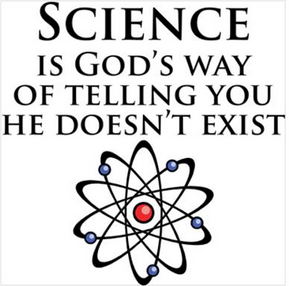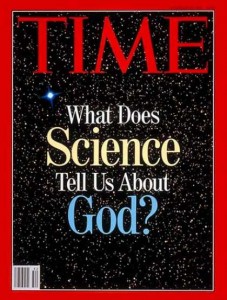 Last July I ended a post on the Higgs boson with an admonition: “Just don’t get me started on this ‘God particle’ business.” But did Christie listen? “I’m sharing it with my husband,” she emailed me about the post. “This whole ‘god particle’ thing has been driving him completely crazy.”
Last July I ended a post on the Higgs boson with an admonition: “Just don’t get me started on this ‘God particle’ business.” But did Christie listen? “I’m sharing it with my husband,” she emailed me about the post. “This whole ‘god particle’ thing has been driving him completely crazy.”
The term, at least in the popular imagination, dates to The God Particle, a 1993 best-seller by Leon Lederman, a Nobel laureate for his work on neutrinos and at the time the director of Fermilab. Most physicists loathe the term “God particle”; it trivializes and misrepresents their work. Peter Higgs himself has railed against it. Lederman’s response: Beyond the God Particle, scheduled for October publication.
The problem with nature—assuming you see it as a problem, which some people apparently do—is that it doesn’t add up. Take everything we know about nature, then take everything there is to know about nature, and the two sides of the equation won’t be equal:
[Everything we know] ≠ [Everything there is to know].
The two sides never have been equal, and they never will be equal. No matter how much we manage to learn about nature, something essential will always remain beyond our understanding. Yet we can correct that imbalance in the vast cosmic equation—we can make the what-we-know-about-nature side equal to the what-there-is-to-know-about-nature side—simply by inserting a variable:
[Everything we know] + X = [Everything there is to know],
where X = [everything we don’t know]. Take everything we know about the universe, throw in X, and nature adds up after all.
Before the rise of modern science, X often equalled God. In that interpretation, everything that wasn’t natural—as in a part of nature that we understand—was supernatural. The purpose of the scientific method, however, was to look for natural causes, and to do so by explicitly rejecting supernatural explanations. And for every natural cause you added to the [Everything we know] part of the equation, the value of X decreased. If you assumed that X = God, then you might well see science as a threat.
Not that the scientific method automatically raised doubts about the existence of God. Newton’s universal law of gravitation provided a far more accurate explanation of the workings of the universe than Aristotle’s spheres, but Newton, too, found himself confronting the same eternal conundrum as Aristotle, a beyond outside the beyond, a beginning before a beginning, a Prime Mover. His solution: a “boundless uniform sensorium,” a presence that is “all eye, all ear, all brain, all arm, all force of sensing, of understanding, and of acting,” “eternal, infinite, and absolutely perfect.” In short, “the supreme God.”
Nor did the scientific method automatically presuppose the nonexistence of God. Even a David Hume or a Thomas Paine, those embodiments of the Age of Reason who tried to logically demolish the likelihood of earthly miracles, including the virgin birth, the resurrection, and other interventions of God in the affairs of Man; even a Thomas Jefferson, who went so far as to snip all references to miracles from the Gospels and reissue it as The Philosophy of Jesus of Nazareth—even they remained Deists, believers in some sort of divinity that set the world in motion, because to their minds someone or something must have done so.
The scientific method did, however, allow for the nonexistence of God. The French mathematician Pierre-Simon Laplace spent a quarter of a century using Newton’s gravity to compile a five-volume mathematical exegesis on the motions of every known object in the solar system. “You have written this huge book on the system of the world without once mentioning the author of the universe,” Napoleon said, when Laplace presented him with a copy. “Sire,” Laplace replied, “I had no need of that hypothesis.” In 1859, the same year as the publication of On the Origin of Species, Charles Darwin wrote to a friend, “I would give nothing for the theory of Natural Selection if it requires miraculous additions at any one stage of descent.”
Invoking God as an explanation for the mysteries of nature seems monstrously narcissistic to me. It defines God by the limits of our knowledge: I can’t explain this; therefore God exists. Yet when confronting the most profound elements of the universe, some scientists seem incapable of stopping themselves.
“If you’re religious, it’s like looking at God,” George Smoot declared at a 1992 press conference announcing the Cosmic Background Explorer (COBE) detection of the cosmic microwave background, the relic imprint of what the universe looked like when it was 379,000 years old and persuasive evidence for the Big Bang interpretation of the universe. For that work he would share a Nobel in physics with John Mather, whose own response to the COBE detection was equally Biblical: “It’s like Genesis.” University of Chicago and Fermilab theorist Michael Turner echoed that sense of spiritual awe, calling COBE’s image “the Holy Grail of cosmology.” Headlines around the world repeated Smoot’s “It’s like looking at God” quote, though Newsweek for some reason shifted the metaphorical focus to the Almighty’s penmanship: “The Handwriting of God.”
To some extent all these spiritual invocations were echoing Stephen Hawking’s famous closing declaration in his 1987 best-seller A Brief History of Time that when at last we find a comprehensive physics, “then we should know the mind of God”—a circumstance apparently close at hand. “We are nearing God,” Hawking said in 1997, discussing his own theoretical investigations into the Big Bang theory. And Hawking was in turn aping Einstein, who often invoked “the Lord” in his musings about the workings of the universe, and who repeatedly said of the probabilistic nature of quantum mechanics, “God does not play dice with the universe.”
Such loose talk does a disservice to science—to how it works, to what it does. And because science is the way by which our species attempts to understand the universe, it does a disservice to civilization.
Yes, I know, this language is presumably not literal. Einstein explicitly clarified his position: “I cannot conceive of a personal God who would directly influence the actions of individuals, or would directly sit in judgment on the creatures of His own creation.” Hawking has repeatedly declared his atheism. And Smoot soon distanced himself from his early enthusiasms: “I want to leave the religious implications to theologians.” Sound advice—even more so if Smoot had managed to actually follow it. But no: “The order is so beautiful and the symmetry so beautiful that you think there is some design behind it.” Meaning…? “God might be the designer.”
Designer? Designer?!
Don’t get me started.
* * *
Image: http://www.cafepress.com/+science_is_gods_way_wall_art_poster,625643128


COULD OUR FAILURE TO DECIPHER EVREYTHING HINGE ON THE MEAGRE 10% ABILITY TO ACCESS OUR BRAIN POWER? And who locked and threw away the key for the 90%? Any help here!
That 10% figure is nothing but a modern myth, proven false.